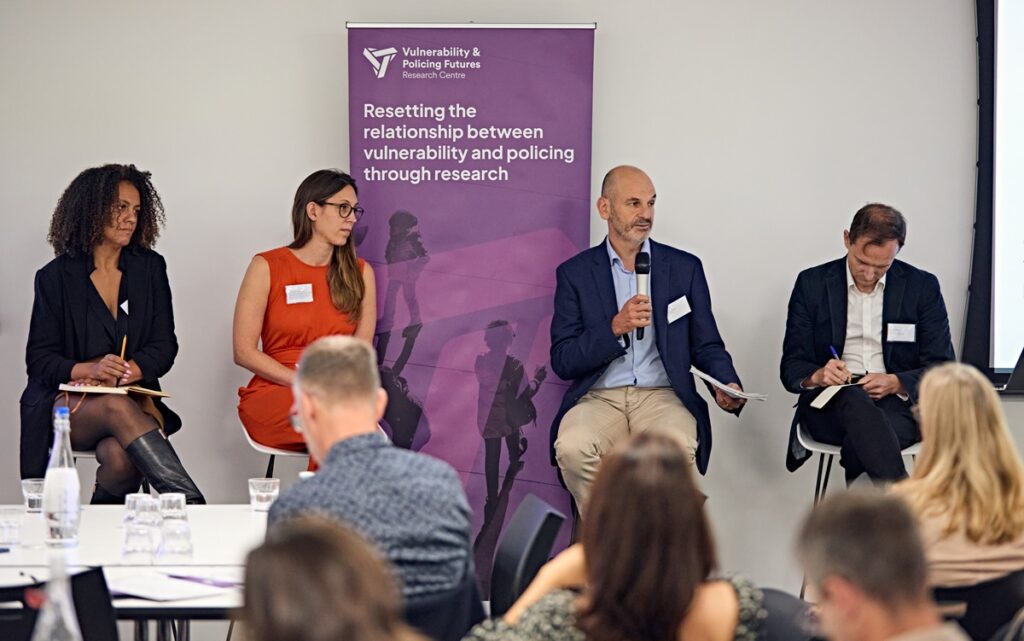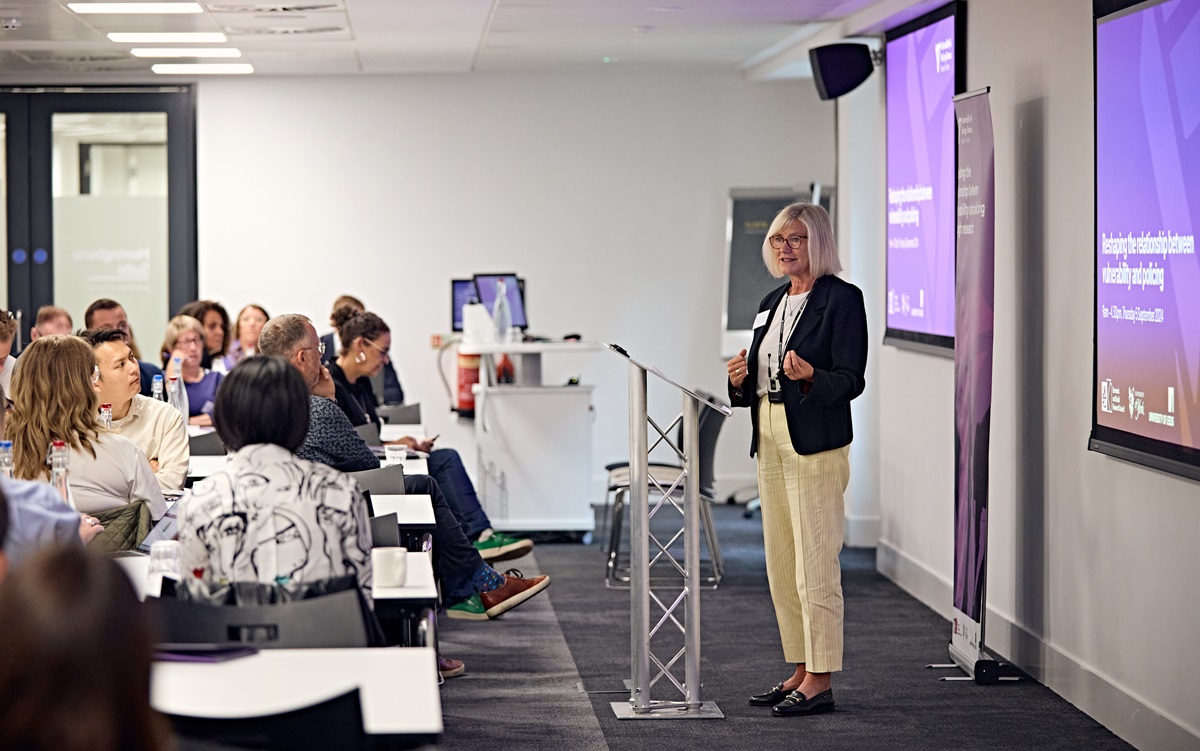The ESRC Vulnerability & Policing Futures Research Centre held its first annual conference today (5 September) with nearly 200 researchers, policy makers and practitioners coming together to discuss how to improve the policing of vulnerability.
5 September 2024
The event covered a range of key challenges that are prevalent in policing vulnerability, including exploitation by county lines drug networks, mental health, and online child sexual victimisation.
Held in Leeds, the conference hosted representatives from the Home Office, local government, national policing organisations, police forces, health and social care, leading universities, and a wide range of charities and NGOs.
The event opened with a keynote address from Professor Dame Sara Thornton, Rights Lab Professor of Practice in Modern Slavery Policy at the University of Nottingham and ex-Independent Anti-Slavery Commissioner. She spoke about the importance of partnership working, information sharing, and focusing on prevention to reduce harm but also the challenges that come with this.
Following many workshops, presentations, and debates around topics such as what the public want from policing, domestic abuse, and how routinely collected data can inform evidence-based responses to vulnerability, the event closed with a panel discussion.
This brought together Professor Carlene Firmin MBE (Durham University), Professor Katrin Hohl (City University of London), Dr Rick Muir (Director, Police Foundation) and Danny Shaw (Ex-BBC home affairs correspondent and former adviser to Yvette Cooper), who discussed the key priorities for research and practice around vulnerability and policing, as well as the opportunities to change policing and service provision for vulnerable people.

New reports
To coincide with the conference, the Centre launched eight new reports summarising findings from its projects:
- Co-designing community resilience to online child sexual exploitation and abuse victimisation
- Service provision for vulnerable people in contact with policing: a strategic view from Bradford
- Viewpoints on vulnerability as a focus for policing and public services
These reports add to the Centre’s first report What do the public want from police? Towards a Minimum Policing Standard, published in June.
Project reports from the Centre’s Connected data analytics programme
- Estimating the nature and scale of response police demand
- Geospatial and sociodemographic patterns of unauthorised school absence
- School absence and Not in Education, Employment or Training
Reports from projects funded by the Centre’s Early Career Researcher Development Fund
- Domestic abuse service providers and their stories
- Social media-facilitated trafficking of children and young people
Early Career Researcher Development Fund for 2025
Speaking at the conference, Centre Co-Director Professor Adam Crawford also announced the opening of the Centre’s third annual Early Career Researcher (ECR) Development Fund.
The Fund offers grants of up to £25,000 for early career researchers to lead co-produced projects that explore current and emerging challenges related to vulnerability and policing.
This year’s Fund is a vulnerability and policing open call with a particular emphasis on the following themes:
- Quantitative methodologies and/or the use of administrative data
- Vulnerability in drugs markets (Dr Leah Moyle Commemorative Award)
The Fund will be open for applications until 4pm (GMT), Monday 13 January 2025.
Read more about the Fund“We’re delighted to launch the third round of ECR grants and to do so at our inaugural annual conference”, said Professor Crawford.
“The volume and quality of applications we have received in previous years is testimony to the importance of the subject area and the wonderful early career scholars across the UK who are working closely with a range of non-academic partners to advance knowledge, understanding, and innovative practices in addressing diverse forms of harm.”
“Some fantastic projects have been delivered from this programme, indeed some of our first cohort of grant holders presented findings from their funded projects at today’s conference. We hope that many more innovative projects can come from this year’s call.
“It is also great to release so many reports highlighting the findings of our first research projects. These four-page reports provide accessible summaries of the Centre projects and will be of interest to practitioners and policy makers. We have a lot more to come from these projects, including resources, webinars and academic papers. So, please keep in touch with the Centre if you want to find out more about our latest research.”
Reflecting on the conference, Professor Charlie Lloyd, Co-Director of the Vulnerability & Policing Futures Research Centre said, “This has been an amazingly informative and productive event. There have been 17 sessions with more than 60 speakers from across policy, practice and research. Every single one of them has brought valuable insights about how we can reshape the relationship between vulnerability and policing. If we’re going to tackle such substantive issues through whole system change, then it is crucial for us to hear, share and learn from a diverse range of perspectives as we have done today.”

